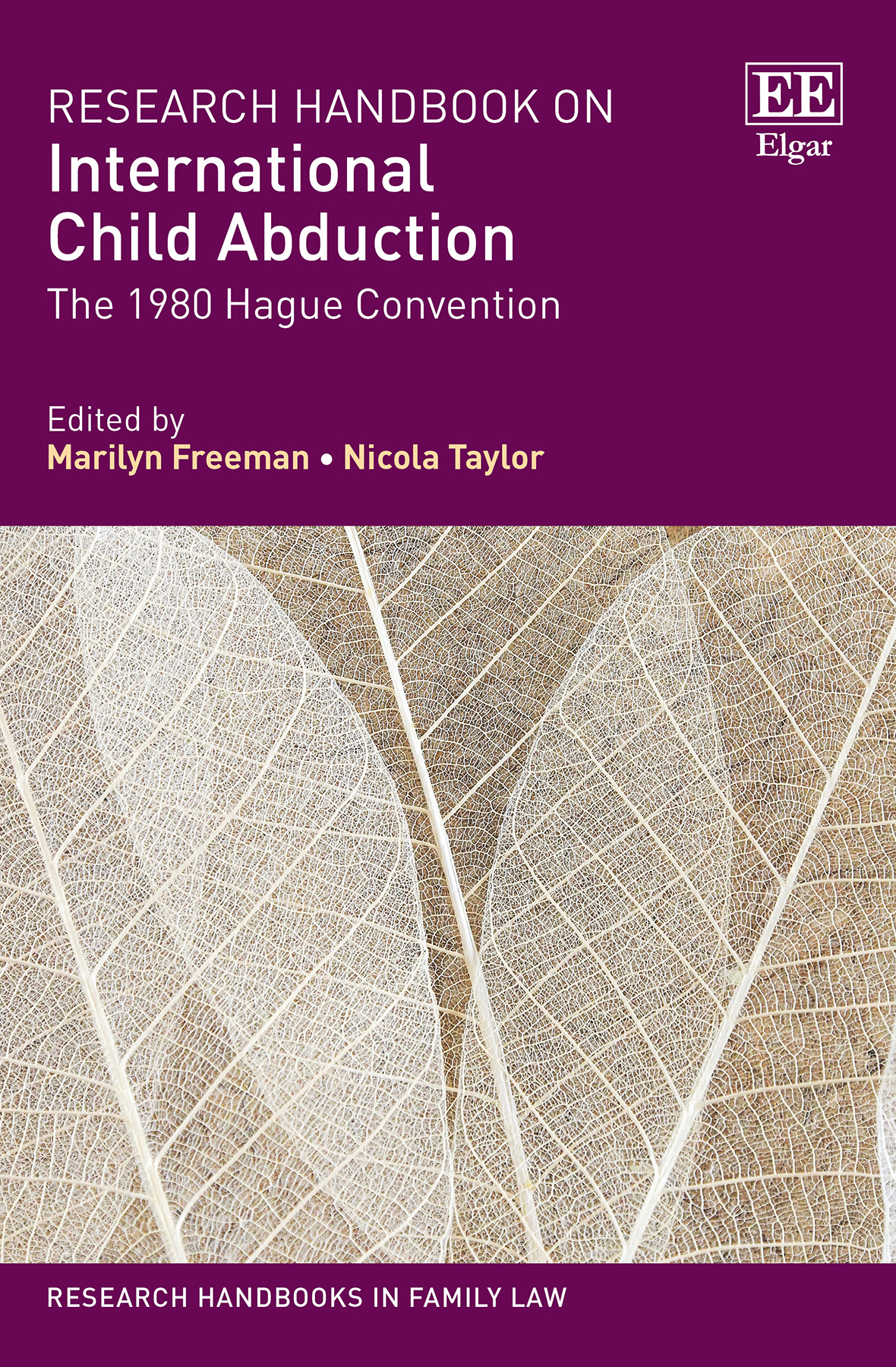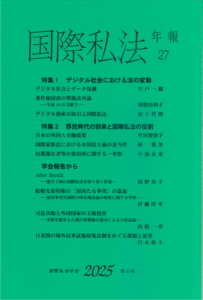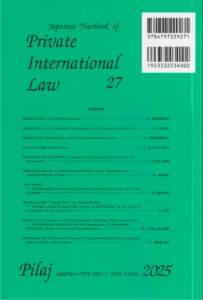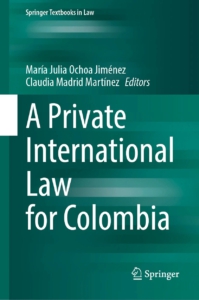Views
The Conflict-of-Law Rules in the UAE’s New Civil Transactions Act: Yet Another Missed Opportunity!

I. Introduction
On 1 January 2026, the Legislative Decree No. 25/2025 promulgating a new Civil Transactions Act (hereafter ‘NCTA’) entered into force. The NCTA repeals and replaces the former Federal Civil Transactions Act of 1985 (hereafter ‘the 1985 Act’). The adoption of the NCTA forms part of the State’s broader and ongoing effort to comprehensively update and modernize its legal system, an effort that has already touched major legislative instruments, including, among many others, the 2022 Civil Procedure Act, the 2024 Personal Status Act, the 2023 Competition Act, and the 2022 Commercial Transactions Act.
Since the 1985 Act contained a codified set of conflict-of-laws rules, its replacement necessarily entails a re-examination of the UAE’s private international law framework and, at least in principle, the introduction of new or revised choice-of-law provisions. Against this background, this note offers a preliminary and necessarily tentative assessment of the modifications introduced by the NCTA. It focuses on the main features of the new law in relation to choice-of-law regulation, highlighting both the changes introduced and the limits of the reform. Read more
Enforceability of foreign judgments for punitive damages under English law and South African law
This post is posted on behalf of Jason Mitchell, barrister at Maitland Chambers in London and Group 621 in Johannesburg.
In Motorola Solutions v Hytera Communications Corporation, the Court of Appeal held that a judgment that includes a punitive damages component is unenforceable in its entirety (the judgment is available here). The punitive component cannot be severed so that the judgment creditor can enforce non-punitive components.
Motorola sued Hytera in the U.S. One of its causes of action was under the Defend Trade Secrets Act, a federal statute that allows for punitive damages of up to double any compensatory damages. On that cause of action, the U.S. court awarded Motorola compensatory damages of $135 million and punitive damages of $270 million. Motorola tried to enforce the U.S. judgment in England. Read more
Book review: Research Handbook on International Child Abduction: The 1980 Hague Convention (Edward Elgar Publishing, 2023) – Part I

Written by Mayela Celis, Maastricht University
International child abduction is a topic that has given rise to an ever-increasing number of publications (our latest blog post attests to this trend). It easily sparks emotions among experts, sometimes triggering divergent views. However, from a global perspective, there is consensus on the basic principle: States should combat international child abductions and a child should be returned to the State of habitual residence, unless an exception is made out. In 2023, Elgar published the book entitled “Research Handbook on International Child Abduction: the 1980 Hague Convention”, eds. Marilyn Freeman and Nicola Taylor (Edward Elgar Publishing Limited, 2023). Although published a couple of years ago, it remains poignantly relevant.
This book brings together an adult who was abducted as a child, practitioners, judges, academics, NGO officials and central authority personnel. Many of the authors are at the forefront of this field and their contributions have left a long-lasting legacy in this area of law. While some topics are considered from an academic perspective, others have a more practical focus, striking the right balance between academia and practice. Read more
News
PAX Moot – Deadline for registration is Friday 16 January 2026 at 23:59 CET
The PAX Moot 2026 Vladimir Koutikov Round is well underway. The case was published on 13 October 2025 and is available here. The deadline for registration is 16 January 2026 at 23:59 CET.
Save the date: The oral rounds will take place from 15 to 17 April 2026 in Sofia, Bulgaria.
27th Volume of the Japanese Yearbook of Private International Law (2025)


The 27th Volume (2025) of the Japanese Yearbook of Private International Law (JYPIL) (Kokusai Shiho Nenpo [Japanese]) published by the Private International Law Association of Japan (Kokusai Shiho Gakkai [Japanese]) (“PILAJ”) has recently been released.
This new volume features the following table of content.
The papers are published in Japanese; all links below direct to the papers’ English summaries.
Jiménez and Martínez on A Private International Law for Colombia

Colombian private international law research has been witnessing a notable period of renewed scholarly activity. Following a previous announcement on this blog of the publication of a volume dedicated to the Colombian Draft Project on Private International Law, a further significant contribution has now been published, this time offering a broader and more systematic perspective on the field. This new contribution takes the form of a book edited by María Julia Ochoa Jiménez (Loyola University) and Claudia Madrid Martínez (University of Antioquia), entitled “A Private International Law for Colombia”, published in the Springer Textbooks in Law series (Springer, 2025).
According to the publisher’s website, the book offers a “[c]omprehensive study of issues underlying PIL, particularly in Latin America and Colombia”, provides “[s]ystematical analysis of PIL rules in Colombia, allowing readers to understand how they deal with global issues”, and “[a]ddresses rules in force, critically examines them and, accordantly, presents and discusses a legislative proposal”. Read more


